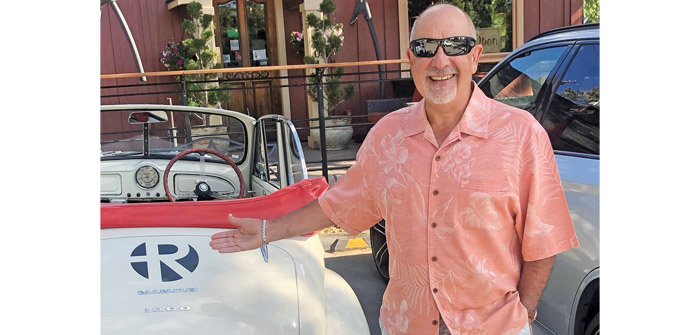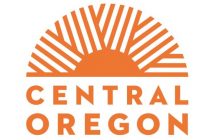(Jim Lee | Photo courtesy of Rosell Wealth Management)
When I think of influential members in the community, I immediately think of Jim Lee, or as I fondly know him as “Jimmy Lee.” We met 15 years ago at a Bend Chamber of Commerce function and I remember immediately feeling as if we were old friends being reunited. This would be the beginning one of the most respectful, and significant relationships in my life.
Jim is a business mentor as well as a life coach who has been retired for ten years. He’s a quiet giant who dedicated his career to the nonprofit sector to help people in need and continues to do so in retirement. He is a great example of someone who lives his retirement years by design rather than by default. One of the tools that has helped him do so is by creating his very own Vision, Mission & Values Statement for this chapter of his life. By offering his lessons learned and the surprises he encountered, he shared with me how to set yourself up for success, so you feel engaged and happy in retirement and why a transition into a re-purposed life is important. Jim was also a guest on my podcast, Recession Proof Your Retirement, for those of you who’d like to hear more.
Here’s some words of wisdom from Jim:
“The word ‘retirement’ comes from the Latin word ‘retir’ which means to end or be put out of use. This makes sense as only a couple of generations ago, people would retire and a few years later they had passed on. Today people are often retiring earlier and living longer — and let’s face it — no one wants to be put out of use! Over the last ten years when people ask if I am retired, I often state that I am repurposed or repositioned. This often brings some additional interesting questions and conversations to the forefront. Before I explain what I mean by those terms, let me provide some additional context.
“In 1889, German Chancellor Otto Van Bismarck put the concept of retirement into play in order to address the extreme rates of unemployment of younger people at that time. To do so they began to pay people aged 70 and older to leave the workplace. Other countries began to follow this practice, including the U.S.A. in 1935 with the advent of Social Security as a safety net. Some best-selling authors, including Neil Pasricha, believe retirement is an outdated Western concept from days gone by that’s based on broken assumptions that we want and can afford to do nothing. In addition, other present cultures — including Okinawa, Japan — have no word for retirement in their culture. The closest phrase they have is Ikigai (icky-guy), or “the reason you get up in the morning.”
“So repurposed for me means that I am retired from obligated work, but have not retired from life or my God-given purpose. During our work years, we can often neglect some of the more important things in life as we navigate the never-ending hectic schedules that seem to hold us hostage. When people ask me what I enjoy most about my retirement, I often say the absence of obligation and a hectic and hurried lifestyle dominated by work. One of my favorite mentors and author, Dallas Willard, captures this sentiment best: “You must relentlessly eliminate hurry from your life. The most important thing in your life is not what you do, it’s who you become.”
“Staying true to my personal vision, mission and values statements has been the key for me in this stage of life to maintain both my balance and focus day to day. When I waiver from these I can get off track and become harried, just like in my past full-time work life. My vision represents my why, my mission represents my what (my overarching purpose) and my values represent my distinct how. Simply put, my vision aspires to fully live out my life beliefs on a daily basis that is evidenced more through my behavior and reputation than the spoken word. My mission is just to sit in the full presence of those brought before me and to lift up, support, encourage, challenge and celebrate. I also have three distinct values; Integrity, how I would like people to describe me; Compassion, how I would like people to experience me; and Commitment, to give my best to each opportunity and try and bring about positive change in my spheres of influence. When I live out my life this way, I have found that most opportunities find me versus me finding them, whether consulting or volunteering.
“I often share with people that HOW we move into retirement (a repurposed life) is more important than being able to retire financially. This to me is the “Now What Question.” To be the most fulfilled person you want to be, your repurposed years are more than about finances — more freedom and fun! These new realities indeed need to be celebrated, but our universal needs do not go away when we quit working full time. Let me share just three of my needs, and I know yours may be different and just as important as these are to me. My first is belonging, or the universal longing for human connections that nurture relationships. The second one is mastery, or the inborn thirst for learning that builds on your core competencies and passions, and perhaps explores some new ones! My third is generosity, or the ongoing character development that continues through social responsibility and the concern for others — a person can say, “I have purpose for my life.” Now before we leave these important needs, let’s look at their opposite; or isolation, stagnation, self-absorption or even selfishness. Regardless of what needs are most critical to you, usually the opposite of their fulfillment in your life is not where you want to be, whether you’re still working or repurposed.
“People often ask me about how to transition into retirement with intention and care. In a transition, something is ending and there is a new beginning ahead — but there is an essential in-between where “the ground lays fallow for a period of time,” and where the work of healthy change takes place. A Rite of Passage if you will — some have called this period “halftime” and some have referred to it as the “neutral zone.” It is where we choose to slow down and ask those thought-provoking questions of yourself and explore how having a mentor or coach work with you might help you stay in this period long enough to make your move into a repurposed life more fulfilling. Let me offer just a few of the questions you might want to consider before leaping into retirement.
- If I choose to continue to work full time vs. retiring in the near future, what might I lose with all that perceived gaining? How much money is enough?
- What do I want my life to look like five to ten years from now?
- What do I truly believe and what do I want to do now with what I believe? The vision, mission, values question. I often share, ‘what’s in your “suitcase” now and what needs to come out, and what new things would I like to include?’
- Do I view the vulnerability and anxiety I feel moving into retirement as a weakness or strength to build on? Who do I respect and admire that has traveled this path before me and what might I learn from them?
- How do I make sure that my new beginning is not just an abandonment of my neutral zone (transition work) or just avoiding an ending? Am I starting something new or just replaying an old pattern?
- What is it at this point in my life that is waiting patiently backstage for an entrance cue?
- At the end of my life, how will others describe their life experiences with me?
“It can be challenging to move from “human doing” (the natural quest for success) to more of “human being” (more longing for significance post career). Richard Rohr, a favorite author of mine, once said, “The first half of life we write the script, build our container and identity, and the second half of life we write the commentary on the text and rediscover what our container was meant to hold, and have the opportunity to redefine or reframe our identity.”
“All the best in your continued journey!”
~Jim Lee
David Rosell is president of Rosell Wealth Management in Bend. RosellWealthManagement.com. He is the host of Recession-Proof Your Retirement Podcast and author of Failure is Not an Option — Creating Certainty in the Uncertainty of Retirement and Keep Climbing — A Millennial’s Guide to Financial Planning. Find David’s books at local bookstores, Amazon, Audible as well as the Redmond Airport.
Securities offered through ValMark Securities, Inc. Member FINRA, SPIC. 130 Springside Drive, Suite 300, Akron, OH 44333 800-765-5201 Investment Advisory Services offered through ValMark Advisers, Inc., a SEC-registered investment advisor. Rosell Wealth Management is a separate entity from ValMark Securities, Inc. and James A. Lee.





